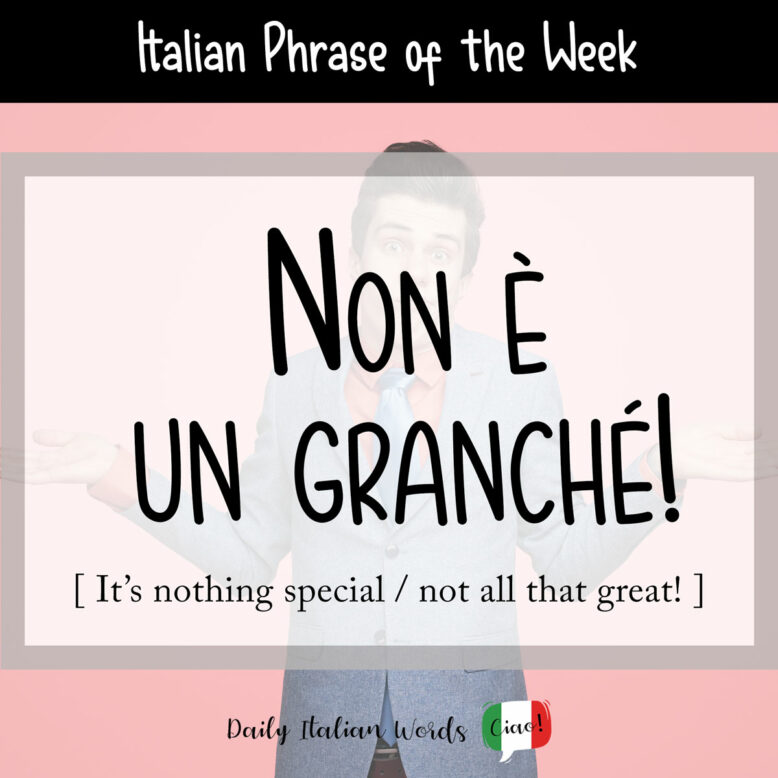If you and a friend go to a restaurant, but the waiters are slow and the dish you ordered doesn’t float your boat, you might describe the restaurant with the phrase:
Non è un granché!
It’s nothing special! / It’s not all that great!
This phrase is used to say that you don’t particularly like something, especially if you started out with high expectations.
Learn with our video

Let’s take a quick look at the four words that make up this phrase:
non
is used to give a negative sense to a sentence, especially in front of a verb. It is the equivalent of not in English.
è
is the third-person singular of the verb essere (to be). It is the equivalent of is in English.
un
is the masculine indefinite article. It is the equivalent of a or an in English. It becomes uno in front of nouns starting with s+consonant.
The feminine version is una, which becomes un’ in front of vowels.
granché
is composed of two words: gran(de) (big) and che (what / that). It can be written as one or two words.
On its own, it means ‘something exceptional‘ but because it is almost always used in negative sentence structures, the more accurate translation is actually ‘something unexceptional‘.
It can also mean much / a lot when used as an adverb.
>> Non vale granché. = It’s not worth much.
>> Non c’era granché da mangiare. = There wasn’t a lot to eat.
Of course, you don’t always have to use essere in its third-person singular form è (is). In the following example phrase, you can see it in the third-person plural form sono (are):
Questi cioccolatini non sono un granché. Non li comprerò più.
These chocolates aren’t all that great. I won’t buy them anymore.

To say that someone isn’t very good at doing something, you can use the expression non essere un granché a:
Diciamocelo, non siamo un granché a cantare!
Let’s be honest, we aren’t very good at singing!
Other Italian phrases you can use to say that something isn’t special include:
- Non è niente / nulla di speciale
- Non è niente / nulla di che
A synonym for un granché is una gran cosa (lit: a big thing). Unlike granché however, gran cosa is used in both positive and negative statements.
La loro idea è una gran cosa.
Their idea is great.
VS
La loro idea non è una gran cosa.
Their idea isn’t great.
This article is also available in video format on our YouTube channel. The audio version can be found on Podbean, Google Podcast, Apple Podcast and Spotify.
Heather Broster is a graduate with honours in linguistics from the University of Western Ontario. She is an aspiring polyglot, proficient in English and Italian, as well as Japanese, Welsh, and French to varying degrees of fluency. Originally from Toronto, Heather has resided in various countries, notably Italy for a period of six years. Her primary focus lies in the fields of language acquisition, education, and bilingual instruction.


